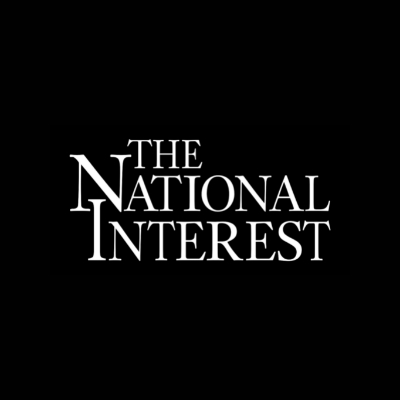 The National Interest Article Rating
The National Interest Article RatingAre Turkey and Iran Uniting Against the Iraqi Kurds?
- Bias Rating
88% Very Conservative
- Reliability
65% ReliableFair
- Policy Leaning
96% Very Conservative
- Politician Portrayal
20% Negative
Continue For Free
Create your free account to see the in-depth bias analytics and more.
Continue
Continue
By creating an account, you agree to our Terms and Privacy Policy, and subscribe to email updates. Already a member: Log inBias Score Analysis
The A.I. bias rating includes policy and politician portrayal leanings based on the author’s tone found in the article using machine learning. Bias scores are on a scale of -100% to 100% with higher negative scores being more liberal and higher positive scores being more conservative, and 0% being neutral.
Sentiments
N/A
- Liberal
- Conservative
| Sentence | Sentiment | Bias |
|---|---|---|
Unlock this feature by upgrading to the Pro plan. | ||
Reliability Score Analysis
Policy Leaning Analysis
Politician Portrayal Analysis
Bias Meter
Extremely
Liberal
Very
Liberal
Moderately
Liberal
Somewhat Liberal
Center
Somewhat Conservative
Moderately
Conservative
Very
Conservative
Extremely
Conservative
-100%
Liberal
100%
Conservative

Contributing sentiments towards policy:
63% : PUK-controlled Sulaimani has become the spotlight, where Tehran has long attempted to counter Ankara's influence and expansions in the region.57% : From Ankara and Tehran's perspective, a subservient or weakened Iraqi Kurdish region must be achieved.
56% : Therefore, from Ankara and Tehran's perspective, a subservient or weakened Iraqi Kurdish region must be achieved.
54% : Given its dependence on Iranian energy, especially natural gas, Ankara will seek to retain a degree of flexibility regarding its policy toward Iran.
50% : Currently, Ankara and Tehran have come to the conclusion that a Kurdish autonomous region anywhere in the world, but especially in a place such as Iraq, would encourage Kurdish independence movements everywhere.
49% : An autonomous Kurdish region would be a model for those fighting to free the remaining parts of what is known as Kurdistan, which have been long divided between Iraq, Iran, Turkey, and Syria.
47% : As a result of the civil war, Ankara and Tehran have significant influence over Kurdish politics in Iraq.
45% : Despite the fact that Turkey and Iran are two rivals, their rivalry has never reached direct conflict.
43% : In order to sustain their power politics, especially during the Kurdish civil war from 1994 to 1998, the KDP has forged close ties with Ankara; in contrast, the PUK sided with Tehran, despite the fact that these ties date back further.
42% : The recent attacks signal a new page in the relationships between Ankara and Tehran, and the prospect that they have sealed a new clandestine deal to cooperate on undermining undermine Kurdish autonomy in Iraq.
42% : Yet that appears less important today: Ankara's increasing attacks in Tehran's sphere of influence stand testament to the fact that the potency of Iran and Turkey's regional rivalry has weakened as economic ties have grown.
40% : Turkey and Iran already face their own nationalist Kurdish movements, some of them armed such as the PKK and KDPI.
38% : On August 11, Turkey mounted a series of cross-border drone attacks in Iraqi Kurdistan against alleged targets of the Kurdistan Workers' Party (PKK), a militant group that has been recognized as a "terrorist" organization by the United States, the European Union, and Turkey itself.
38% : Turkey has a serious interest in preventing relations with Iran from deteriorating too badly and in not taking actions that could give Tehran an excuse to step up support for the PKK.
35% : Iran, on the other hand, has launched a spate of missile and drone attacks deep into Erbil province, where Ankara's sphere of influence that stretches from the Duhok area ends.
33% : In November of the same year, the Revolutionary Guards once again unleashed several attacks on Erbil's Koya town with kamikaze drones and missiles against the Kurdish Democratic Party of Iran (KDPI) headquarters, leading to several deaths and casualties.
32% : Tehran accused the KDPI of fomenting the nationwide protests that swept the country for months over the death of the Kurdish woman in the custody of the Iranian morality police.
29% :Last year, John Bolton, a former U.S. national security advisor, claimed that weapons were being smuggled from the Iraqi Kurdish region to Kurdish opposition parties in Iran, a claim that was subsequently denied by the KRG.
*Our bias meter rating uses data science including sentiment analysis, machine learning and our proprietary algorithm for determining biases in news articles. Bias scores are on a scale of -100% to 100% with higher negative scores being more liberal and higher positive scores being more conservative, and 0% being neutral. The rating is an independent analysis and is not affiliated nor sponsored by the news source or any other organization.





















